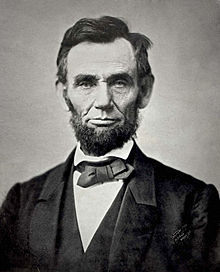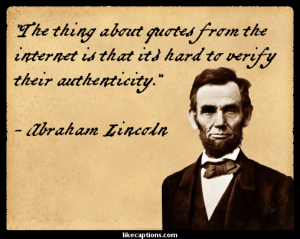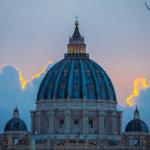Everyone knows how easy it is in the age of the internet to cobble together a saying that meshes with the popular mood of the times, and then attribute it to a giant of philosophy, art, or politics. Often times these alleged quotes seem too good to be true. And after a little cursory check, you know, actually looking for a reference that verifies said quote, you come up empty, and toss it in the trash.
This practice is so prevalent that the following quote “attributed” to Abraham Lincoln has become a joke all it’s own,
LOL, right?
But today I saw a quote of Lincoln’s that Kathy Schiffer posted on Facebook, and after a cursory check, it comes back ringing the bells of authenticity from every belfrey in the country. Take a look,
RESOLVED: That the guarantee of the rights of conscience, as found in our Constitution, is most sacred and inviolable, and one that belongs no less to the Catholic, than to the Protestant; and that all attempts to abridge or interfere with these rights, either of Catholic or Protestant, directly or indirectly, have our decided disapprobation, and shall ever have our most effective opposition. –ABRAHAM LINCOLN at a Whig gathering
I’ve found that the most effective way to verify something like this is to take the quote straight to Google Books, and search for sources there. And that is where I found the backstory on the resolution quoted above. Published in 1920 was a book, Abraham Lincoln, Man of God, penned by the Chancellor of Lincoln Memorial University, Dr. John Wesley Hill. In the book, in a great chapter aptly called “Courage Mounts With Occasion,” he writes,
To courage was added a sane tolerance as religious as the tolerance of Gamaliel who put first the will of God in the consideration of all questions. Lincoln’s attitude in 1844 in respect to the “Know Nothing” party is noteworthy. He did not believe the political ostracism of foreign-born voters and Roman Catholics was Christian. The riot and bloodshed to which it led in several of the larger cities where the “Know Nothing” party was strong seemed un-Christian. When the movement threatened to sweep the country and place the Proscriptionists in power, Lincoln, with his great heart and mighty intellect, sought by judicious means to check the panic among foreign-born citizens. He introduced and supported a resolution in a meeting at Springfield in June of that year, declaring that, ” the guarantee of the right of conscience, as found in our Constitution, is most sacred and inviolable, and one that belongs no less to the Catholic than to the Protestant,” and that “all attempts to abridge or interfere with these rights, either of Catholics or Protestants, directly or indirectly, have our decided disapprobation and shall have our most effective opposition.” This was the beginning of a campaign against intolerance and disorder which he pursued to the end with unabated zeal. Even at the last Cabinet meeting, the very day the bullet took his life away, Lincoln—says Mr. Welles— “hoped there would be no persecution, no bloody work, after the war was over.”
Lincoln lived in all its fullness the Christian faith most of us at best profess.
You’ll want to read that whole chapter of Dr. Hill’s, if not the whole book. Guess who writes the introduction? A fellow by the name of Warren G. Harding, whom you may (or may not) remember. Therein, the 29th President of the United States notes this about the 16th President,
These times (ed. 1920) as truly try men’s souls as Lincoln’s times. Problems of today are as grave and complex as the problems to which Lincoln brought as clear a mind and pure a soul as modern times have known. A free people whose freedom has been purchased at a great price must now choose between the merely economic and the spiritually moral, between irresponsible Marxianism so subtle that even the timid who dare not champion it outright are still under its dominion, and Lincolnism calling as loudly today as in the Gettysburg address: “This nation, under God, shall have a new birth of freedom.”
We are at the parting of the ways. Is our thought to function in the lowlands of materialism in the days before us, or in the religious highlands where Lincoln lived and died that we might live? That is the supreme question we have now to answer.
Two Presidents, speaking from eternity about our present situation, perhaps? We that have ears, let us hear.
Freedom of religion, and freedom of conscience, as our shepherds note, are our first liberties here in the United States. If they go away, or are stultified into a weak shadow of their former selves under the rubric of “freedom of worship,” we’ll find ourselves asking the questions Neil Young sings of here. Because after reading Hill’s chapter, and the thoughts of President Lincoln, who was our very own “philosopher-king,” think of how life in the United States would be like without true religious freedom. Surely, it would be a barren land, as Neil’s lyrics may help you imagine.
Let’s save the garden.













